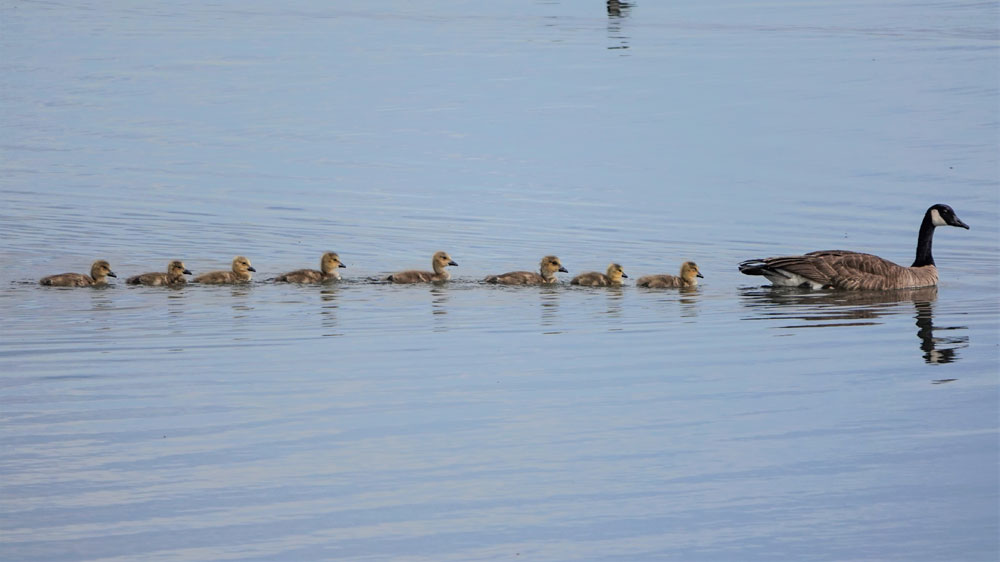
Mid-May, 8 goslings follow mother Canada Goose
Spring migration from March to May is over and Summer arrived on June 21. I’m surprised that I have not yet showcased the Mallard and the Canada Goose in my “Bird Sightings” column because they are two of the most ubiquitous birds around the Denver area. The Mallard is the most frequent duck that one will encounter near a body of water, only to be superseded by the Canada geese that congregate on grass patches like soccer fields, public parks and golf courses, in addition to ponds, streams, and lakes. So here they are! During May and June, goslings and ducklings appeared around Denver and imprinted on their parents.
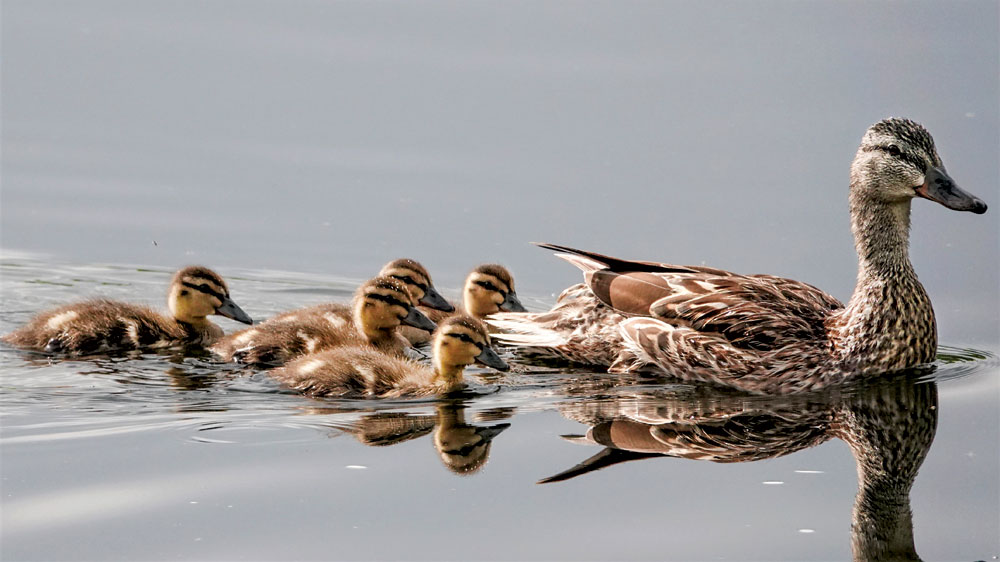
Mid-June, 5 ducklings trail Mallard mom
The mothers are extremely attentive and protective of their young. They lead them, coax them, call them, and defend them. The clutch size of the Canada Goose ranges from 2 to 12 eggs. The clutch size of the Mallard ranges from 1 to 13. The goslings and ducklings are precocial or fully active and independent once dried off after hatching. Survival rates to fledglings vary. Predation, disease, malnutrition, and extreme weather conditions tend to increase mortality.
Here are what these babies look like a few days after hatching:
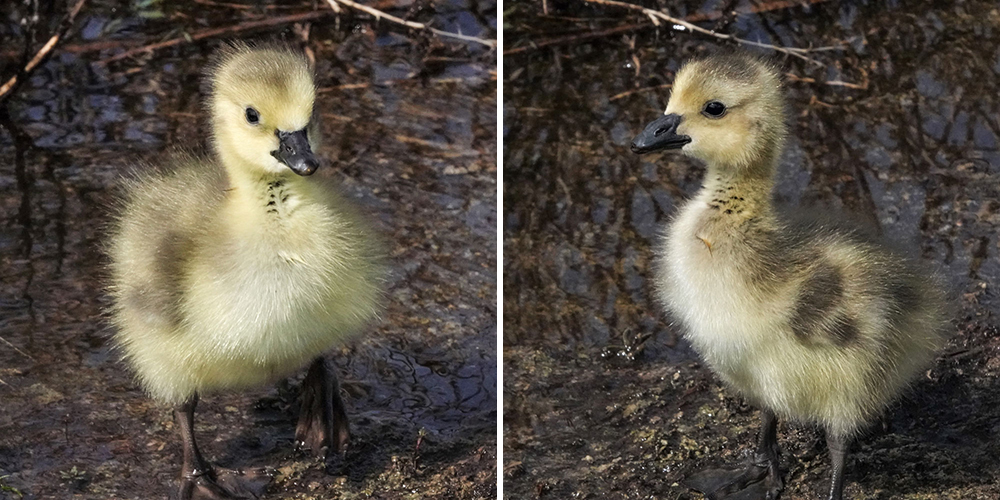
Gosling of Canada Goose
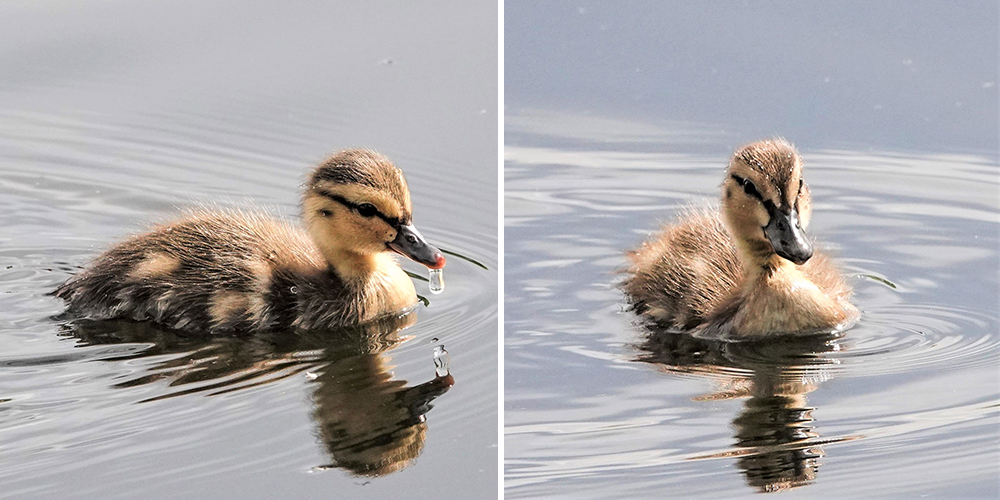
Duckling of Mallard
Mallard Mother and Father:
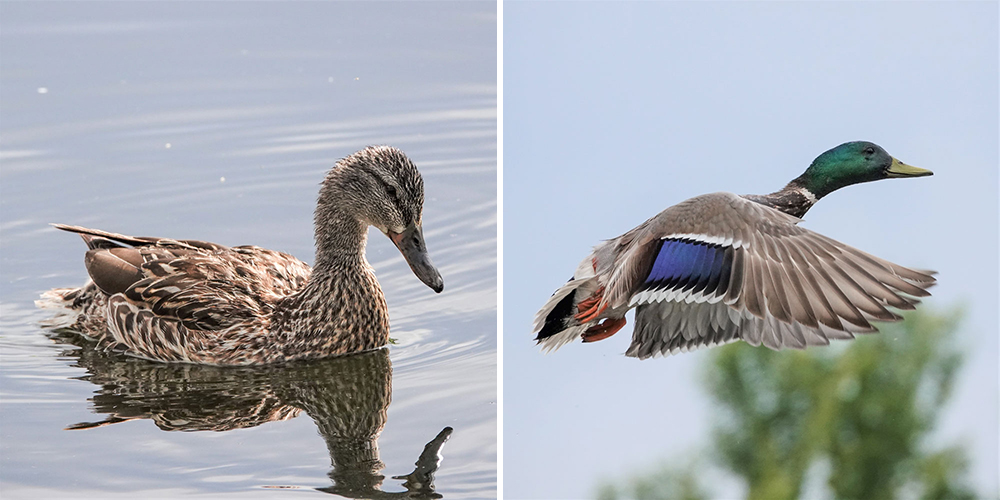
Length 23 inches. Weight 63.5 ounces (4 lbs.) Wingspan 43–48 inches (up to 4 feet.)
Canada Goose (Males and Females look alike):
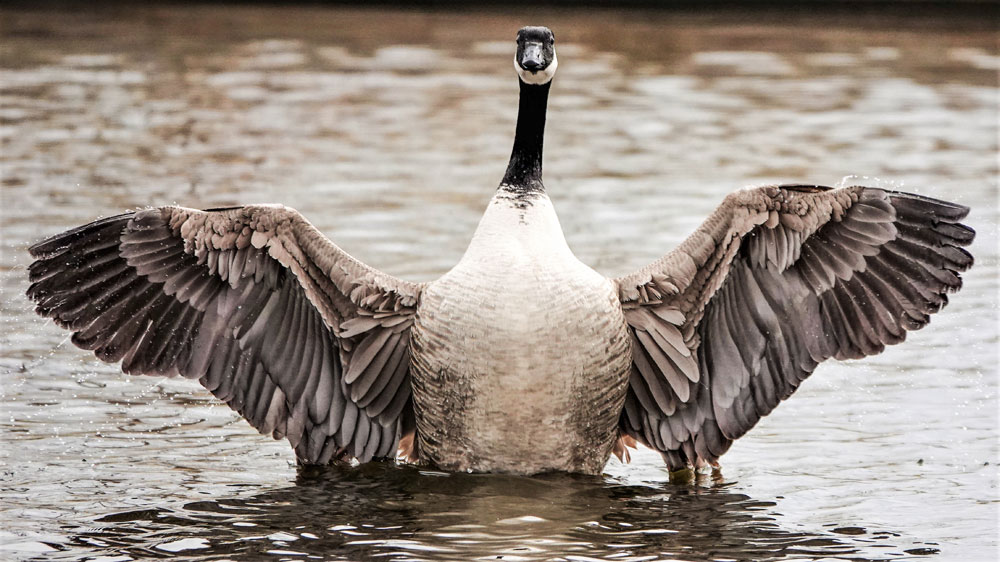
Length 25–45 inches. Weight 230 ounces (14 lbs.) Wingspan 70–75 inches (up to 6 feet.)




0 Comments